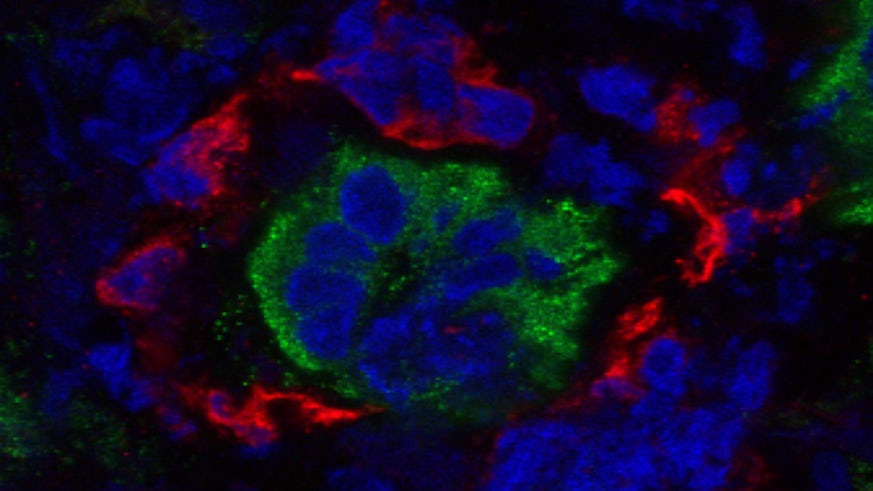Cardiff Scientists uncover how harmful viruses hide in salivary glands
6 February 2015

Researchers at the Cardiff Institute of Infection and Immunity have discovered one of the secrets of cytomegalovirus that allows this virus to persist within the salivary glands and subsequently disseminate through saliva.
Many viruses spread from person to person through mucosal secretions including saliva. One such virus is cytomegalovirus – a pathogen that causes congenital birth defects and can lead to severe diseases in immune-suppressed individuals. The laboratory of Dr Ian Humphreys has now discovered that cytomegalovirus exploits the CD200 receptor pathway to dampen antiviral immune responses that would otherwise control the virus.
Immune responses in mucosal organs like the salivary glands are tightly controlled to prevent exuberant and potentially harmful reactions to harmless foreign materials that these sites are continually exposed to. CD200 receptor is one such important regulator of mucosal immune responses.
The study, published yesterday in PLOS Pathogens, demonstrates that CD200 receptor restricts the expansion during infection of a population of immune cells called macrophages that would otherwise orchestrate mucosal antiviral immunity. Furthermore, lead researcher Dr Gabrielle Stack discovered that cytomegalovirus actively promotes triggering of the inhibitory CD200 receptor pathway to maximize shutdown of antiviral immune responses.
Dr Humphreys and colleagues believe that these findings suggest that targeting the CD200 receptor pathway in immunization strategies may improve mucosal immune responses induced by vaccines and subsequently reduce the spread of harmful viruses like cytomegalovirus through saliva and other mucosal secretions.